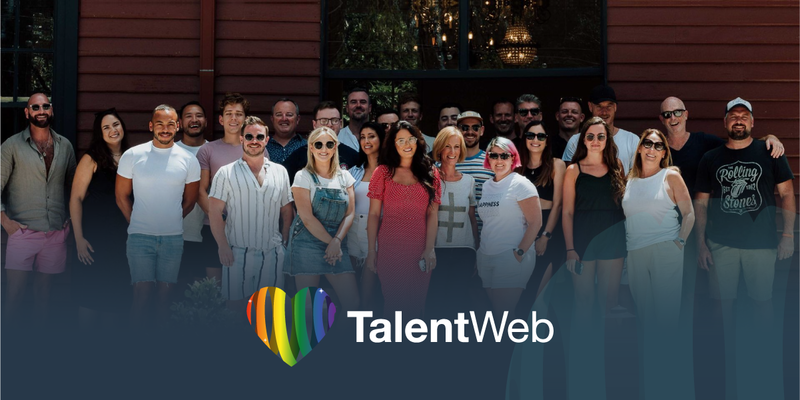
December 29, 2023
When candidates are evaluating a potential role, the employer brand will likely influence their choices. As research from Glassdoor shows, 84% of active jobseekers cite company reputation as an important factor in their decision to apply for a position. The most popular organisations people want to work for typically have a positive public perception of their employer brand, not just their products or services.
Effective reputation management also presents major cost savings in recruitment, as a poor employer brand can result in high staff turnover and ineffective talent acquisition – while a strong reputation can help bring the talent to you!
Although a great company reputation isn’t built overnight, there are some principles employers can consistently use to position your business as an attractive place to work.
Audit and Monitor Your Reputation Regularly
To effectively manage your company’s reputation, you first need to develop an understanding of how others see the business. This is where a reputation ‘audit’ comes in.
The first step is to survey your current employees to understand how they perceive the company’s culture and image as an employer. Give employees the option to remain anonymous in these surveys, so you can get the most accurate picture possible. How likely are they to recommend your company to a friend? Are they happy about their career prospects with the company? How do they describe their work/life balance and team culture?
Current employees are a company’s full-time brand ambassadors. They can be a powerful resource for showcasing your company’s culture to the public; they can also present a reputational risk if employee dissatisfaction is an issue. Think about how you can address any unmet needs for employees and anticipate their needs before they have the potential to become reputational risks.
You can also work with your marketing team to survey your customers, clients and candidates to gauge their sentiment and compare internal and external perceptions of the business. Any feedback, whether it is positive or negative, will highlight the strengths and weaknesses of your reputation and what steps you could take to promote or mitigate these.
Keep in mind that gathering and analysing feedback is not a one-off event; many leading organisations continually seek feedback from their employees and customers as part of an ongoing process of reputation management.
Harness the Power of Your Employees, Company Website and Social Media
A company’s website and social media channels are often the first places jobseekers and candidates visit when considering an employer. About 68% of jobseekers consider company websites and social media channels the most effective branding tools for a company, according to LinkedIn research, so it pays to dedicate resources to these domains.
Consider the feedback gathered during your reputation audits. What are the key characteristics of your company’s culture? What perks and benefits do you offer to employees? What career paths and development opportunities are available within the business? These elements are a solid foundation for creating content to add to your website and social media posts to show off what makes your company a great place to work. We recommend thinking about the specific social media channels your candidates are likely to use the most, such as Facebook, LinkedIn, Instagram or others, and establish a presence there.
Enlisting current employees as ‘brand advocates’ to create and post social media content is one of the most effective tools to promote an employer brand. Examples of content worth posting include videos showing “a day in the life of” an employee or team, a celebration of a business achievement, the company’s involvement in charity work and community programs, and staff social activities. Keep in mind that you don’t need to overdo it with slick and overproduced videos; authenticity is the most important thing!
Establishing social media guidelines is important for corporate reputation management, helping to maintain consistency and to provide a benchmark for team members around what kind of content to post. The aim is to find a balance between managing reputation and empowering employees to feel positive about sharing company content, in their own voice. This can pay dividends for an employer brand. As LinkedIn research shows, content has two times higher engagement when shared by employees.
Enhance the Candidate Experience
The experience a company provides to candidates during the recruitment process is one of the most overlooked opportunities for reputation management.
According to a study by SEEK, nearly half of all candidates have applied for a job and never heard back from the organisation. Of those people, 66% felt more negative towards the company, and more than half (57%) said they were unlikely to apply for another job at the company in the future as a result.
Considering these statistics, there is ample space to stand out as an employer by keeping applicants and candidates in the loop with communication at every stage. The best way to uncover any weaknesses in the process is to undertake it as if you were an applicant. Is there follow-up? Does every candidate understand where they are at throughout the process?
Also consider how you can close the loop by providing feedback to unsuccessful candidates where possible, particularly for roles where recruitment is especially difficult. If you’re working with a recruiter, they can take care of all this for you, ensuring the candidate experience is the best it can be while allowing you to focus on other parts of your business.
Summary
Building and maintaining a solid company reputation is one of the most effective recruitment tools at your disposal. Using feedback to inform your efforts to promote your employer brand will help keep you on target. Working on your company’s online presence, and using employees as brand advocates are highly effective approaches to talent attraction. And don’t forget to pay close attention to your candidate experience to show you’re serious about talent.
Do you need more advice on how to maintain your company reputation, or help with finding the right talent? Get in touch with our experienced Sydney recruitment agency to discuss your options.












